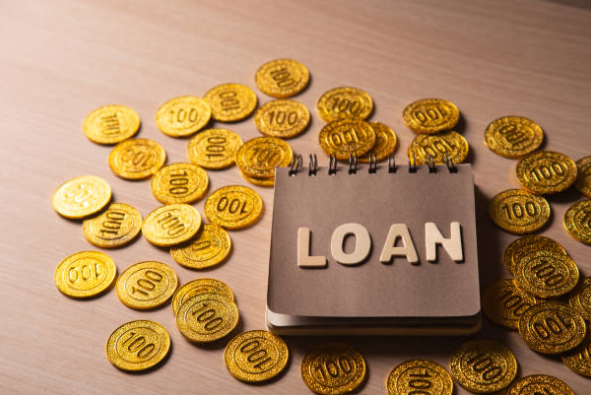How to Get Personal Loan without Co-Signer/Guarantor

When a person goes to the bank or their preferred credit union to apply for a personal loan and does not get approved, they often hear from the agent that they “need a co-signer” to reduce their risk level and get access to the money. However, not everyone can get the approval of a trusted person to serve as a co-signer and thereby strengthen their personal loan application.
So, is all lost? Well, no. In order to convince lenders that you manage your money well and will be able to repay the loan in full and on time, you can focus on identifying what banks look for in a desirable borrower. This could allow you to access better opportunities without having to find a guarantor to back you up.
So, if you’re wondering “how to get a personal loan without a co-signer?” you’ve come to the right place! Here are some ideas you can implement to reach your financial goals.
Who is a co-signer?
A co-signer is a person who endorses another person’s loan. This means that, if the loan holder does not pay back the money on time, it is the co-signer’s turn to pay the amount owed to the lender.
Adding a co-signer on the personal loan application gives the lender not one, but two people from whom to get the money, as well as two potential income to fund the payment. In other words, this person will be as responsible for the loan as is the holder.
Note: Co-signer also gives the borrower the opportunity to access the loan because he/she will be able to take advantage of the payment history, the percentage and proportion of debt and the credit score of this close person who offers to help him/her. Therefore, it is always best to ask someone you trust and with stellar credit to be your co-signer.
Why do you need a co-signer?
Lenders evaluate their clients’ applications to determine the likelihood that the money that is requested by interested parties will be repaid in full and with interest. To do this, they look at two essential aspects, at least in principle: credit score and income.
An undesirable credit score or a low income are perhaps the main reasons why a bank may deny you a loan, unless you have a co-signer or guarantor. Keep in mind that if the lender doesn’t trust you to be able to pay the money on your own, they may not approve your application.
Having a co-signer with a good credit history or solid income will increase your chances of being approved for the loan, regardless of your financial profile and the risk attached to it. Why? Because the co-signer will back the debt and reduce – at least at first glance – the likelihood of default, thus protecting the lender’s interests.
How do you get a personal loan without a co-signer?
Even when a lender explains to a person that his credit score is not high enough and that he needs a co-signer to back him up, it is likely that he cannot count on the support of a co-signer. If we explore it in detail, there are many reasons why you may not have anyone to ask for this favor, but the most popular ones are as follows:
If you are new to the country or don’t have reliable people within your close group, you may have to give up on the idea of applying for a loan with a co-signer.
Other applicants prefer to take full responsibility for the loan, either because they don’t want to involve a friend or family member in something so sensitive, or because they want to achieve their financial goals on their own.
Note: Before adding a co-signer to your loan application, think carefully. Remember that if you don’t pay your installments on time, it will negatively affect both your credit history and that of your co-signer. In addition, this impasse could create an irreparable rift in your relationship with that trusted friend or confidant.
So what do you do if you don’t get approved for credit the first time?
If lenders tell you they can’t approve you for credit, don’t take their word for it. There are different things you could try (some faster than others) in case you need a loan and don’t want to involve a third party as a co-signer:
#1 Improve your financial profile
You may think this is not the quickest solution, and you may be right, but it is the most sustainable and will increase your chances of getting a loan without a co-signer in the future. If you improve the metrics lenders are interested in, you can change their viewpoint and start being an attractive customer to them.
Not sure how to get started? Get inspired with the following tips!
(i) Build a better credit score
If you can’t rely on a co-signer to back you up, and your credit isn’t high enough, work on improving your score. Whether you haven’t had a chance to establish enough credit or you’ve skipped a few payments in the past: you can always rebuild your score, even if it takes time.
For students and people under 21, this will be a challenge, but it’s not impossible. For example, they could choose to get a smaller line of credit or apply for a secured loan at a bank.
(ii) Look for other sources of income or increase your income
Banks approve or reject loans based on income by calculating what percentage of your income you will have to spend on monthly payments. This is estimated using the income-to-debt ratio, which should normally be less than 36%. By increasing your income (looking for a second part-time job or a freelance project) you can increase your chances of approval because, by earning more money, you will reduce the percentage of your total debt in relation to your income.
You can even access some online options, such as putting a gig on Fiverr or opening your profile on Freelancer.
(iii) Correct errors in your credit score
Sometimes, there are errors on credit reports that could prevent you from getting the loan you need. Put them aside by contacting the credit bureaus that have added erroneous information to your report and ask them to help you improve your credit score. Remember that you will be able to make your disputes online and without leaving home.
(iv) Pay off all outstanding debts
Your credit score and monthly income are also affected by the amount of debt you currently have. If you pay off all your debts, it will be much easier to get a new loan because you will no longer be maxed out and will have fewer obligations to pay.
With large loans, such as mortgages, you can do a quick rescore after paying off your debt (or correcting errors on your report). This could give you a higher credit score in a matter of days.
#2 Consider other lenders as well
One lender may have said “no” to you, but that doesn’t mean there aren’t more out there. Look for financial institutions that are smaller, such as regional banks or credit unions. Think that new online lenders (including peer-to-peer lenders) may be willing to lend you money even if your credit isn’t the best in the world.
Some online lenders approve credit based on metrics beyond score and income. They may consider, for example, your profession or work history. These could be excellent options for people who don’t have a good score.
#3 Adjust the loan amount
Lenders may have denied you a loan, but that doesn’t mean you can’t reapply for less amount, freeing you from the need to add a co-signer to the application.
Do your math very well to figure out what your monthly payments would be if you apply for a smaller, more comfortable amount, and evaluate what your debt-to-income ratio would be if you apply for a loan for that amount.
Having a larger down payment can also improve your loan-to-value ratio, for example, to purchase a house or a car, and thus make your profile more attractive to lenders.
Have you thought about a pledge guarantee?
Another option you could try is to apply for a loan and give an asset you own as collateral. Unfortunately, this is a risky strategy because you could lose the asset if you are not able to pay on time (the bank could seize the asset and sell it to pay off the debt).
For example, if you borrow money from the bank using your car title as collateral and you fall into default, the bank could seize it and sell it at a public or private auction to recover the amount of the debt. The same would happen with your house if you are unable to pay the mortgage or reverse mortgage.
Have you explored student loans yet?
If you’re trying to get a student loan, you have many options available to you, even if you leave co-signers out of it. Start with federal student loan programs (better known as Direct Loans) by going to your college’s Financial Aid office. To complete the application, you’ll need to fill out a FAFSA form and provide details about your financial life.
Federal student loans are the best credit available because they are relatively flexible in terms of repayment and may even help you by assuming interest charges. Stafford loans, in particular, are also very attractive. To give you an idea, they have availability for full-time, part-time, undergraduate and graduate students. Your background here won’t be a problem, in fact anyone can get these loans without a co-signer, at least as long as you meet the criteria set for Stafford loans.
If you need more than the maximum allowed, then you might look up to private lenders. In the latter case, they will most likely require a co-signer in order for you to get the personal loan, unless you have sufficient credit score and income.
Author Bio:
I am Nikesh Mehta, owner and writer of this site.

I’m an analytics and digital marketing professional and also love writing on finance and technology industry during my spare time. I’ve done online course in Financial Markets and Investment Strategy from Indian School of Business. I can be reached at [email protected] or LinkedIn profile.




Joan L. Murphy
Very nice article, exactly what I needed. Very useful post I really appreciate thanks for sharing such a nice post. Thanks